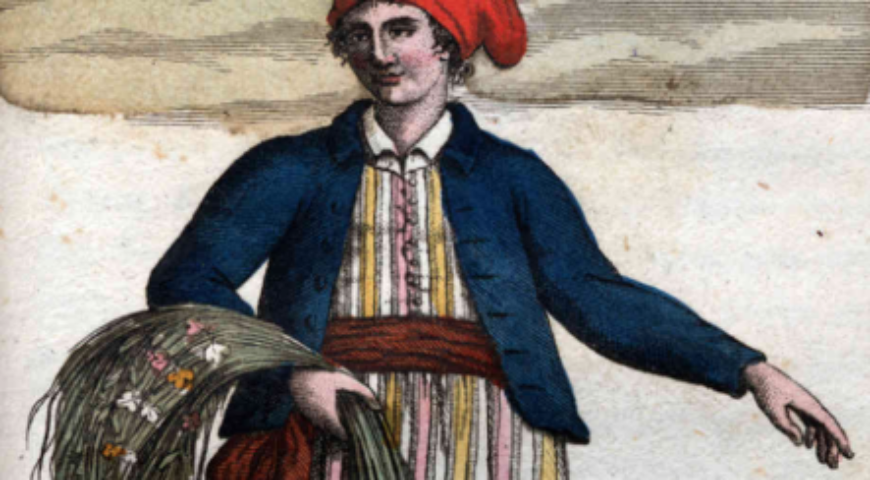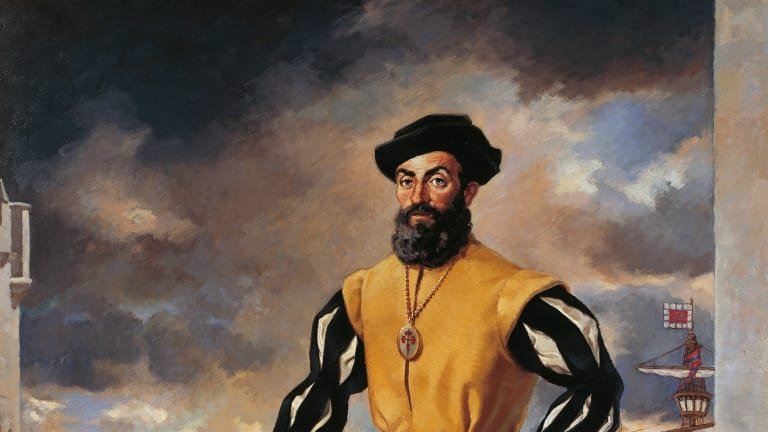Ferdinand Magellan and his crew were the first to travel around the world, completing the journey in 1522. The historic expedition began in 1519 and succeeded in circumnavigating the globe in roughly three years.
Setting sail from Seville, Spain, the expedition led by Portuguese explorer Ferdinand Magellan aimed to find a westward route to the lucrative Spice Islands. Although Magellan did not survive the entire journey, his crew completed the first recorded circumnavigation of the Earth, marking a significant milestone in the history of exploration.
Their incredible feat paved the way for future explorers and ignited a new era of global navigation and trade. Magellan’s expedition remains a testament to human perseverance and the relentless pursuit of discovery.

Credit: www.youtube.com
Table of Contents
ToggleExplorers Before The Age Of Globalization
The history of human exploration is a fascinating tale that dates back thousands of years. Even before the age of globalization, there were brave individuals who ventured into the unknown, charting new territories and connecting distant civilizations. These ancient and medieval explorers paved the way for future generations to travel around the world. In this article, we will delve into the captivating stories of these intrepid adventurers.
Ancient Explorers
Ancient times witnessed remarkable individuals who embarked on fearless expeditions, expanding the boundaries of human knowledge. These explorers were driven by an insatiable curiosity and a thirst for discovery. Let’s explore some of the most renowned ancient explorers:
- Pytheas of Massalia: Pytheas, a Greek geographer, lived during the 4th century BC and voyaged to the distant lands of Northern Europe. Despite facing treacherous conditions, his journey resulted in groundbreaking knowledge about the Arctic Circle and the British Isles.
- Sunjata: Sunjata, the legendary founder of the Mali Empire in West Africa during the 13th century, undertook expeditions to foster trade and establish diplomatic relations. His voyages across the Sahara Desert opened up new routes for commerce and cultural exchange.
- Zhang Qian: Zhang Qian, an influential Chinese diplomat and explorer of the 2nd century BC, undertook a series of diplomatic missions that extended the Silk Road from China to Central Asia. His expeditions facilitated trade between China and the Western regions, fostering tremendous cultural exchange.
Medieval Explorers
The Middle Ages marked a period of significant exploration as civilizations sought to expand their influence and discover new trade routes. Let’s take a closer look at some of the notable medieval explorers:
- Marco Polo: Marco Polo, an Italian merchant, embarked on a legendary journey to China during the 13th century. His detailed accounts of his travels paved the way for future traders and explorers, sparking curiosity about the Eastern world.
- Ibn Battuta: Ibn Battuta, a Moroccan explorer, traversed vast distances during the 14th century, visiting numerous countries in Africa, Europe, and Asia. His extensive travels resulted in a remarkable record of his experiences, shedding light on the diverse cultures and civilizations of the medieval world.
- Leif Erikson: Leif Erikson, a Norse explorer, is believed to have ventured to North America in the 10th century, predating Christopher Columbus by several centuries. This Viking explorer’s expeditions caused a significant shift in the understanding of early transatlantic contact.
These ancient and medieval explorers exemplify the indomitable human spirit, pushing the boundaries of geographical knowledge and connecting civilizations in an era far removed from the age of globalization. Their bold endeavors provided a foundation for further exploration and laid the groundwork for future travelers around the world.

Credit: www.nationalgeographic.com
Age Of Exploration
The Age of Exploration, also known as the Age of Discovery, was a period in history that spanned from the 15th to the 17th century. This era marked a significant turning point in global history, as it witnessed European explorers embarking on voyages of discovery to unknown lands.
European Explorers
European explorers such as Christopher Columbus, Vasco da Gama, Ferdinand Magellan, and Amerigo Vespucci were among the notable figures who undertook expeditions during the Age of Exploration. Their voyages led to the establishment of new trade routes, the discovery of uncharted territories, and the eventual colonization of distant lands.
Significance Of Global Exploration
The global exploration during this period brought about profound changes in the world by facilitating cultural exchanges, the exchange of goods and ideas, and the spread of knowledge. It also played a crucial role in shaping the modern geopolitical landscape and had a lasting impact on the world’s economy.
Modern Travel Pioneers
Modern Travel Pioneers have played a crucial role in shaping the way we explore the world today. From aviation pioneers to explorers of the poles, these individuals have fearlessly pushed the boundaries of what was once thought possible, opening the doors for millions to follow in their footsteps.
Aviation Pioneers
Aviation pioneers have left an indelible mark on the world by introducing a revolutionary mode of transportation that has connected people across continents. Wilbur and Orville Wright famously achieved the first controlled, sustained flight of a powered aircraft in 1903, marking the beginning of modern aviation. Their groundbreaking feat paved the way for the development of commercial air travel, transforming the world into a global village.
Explorers Of The Poles
The quest to reach the poles has captivated the hearts of adventurous souls for centuries. In 1911, Roald Amundsen became the first person to reach the South Pole, prevailing over treacherous conditions to achieve this remarkable feat. Similarly, Robert Peary and Matthew Henson are credited with being the first individuals to reach the North Pole in 1909, a monumental accomplishment that inspired future generations of explorers.
Space Travel Exploration
Space exploration has always been an intriguing subject for enthusiasts and researchers alike. From the first man on the moon to the probes launched to distant planets, human curiosity has constantly driven us to venture further into the unknown. In recent years, space travel has taken another leap forward with the advent of commercial space tourism and the increasing interest in exploring the cosmos beyond our planet. One of the most exciting aspects of space travel exploration is the missions undertaken and the extraordinary individuals who become astronaut explorers.
Space Missions And Astronaut Explorers
Space missions play a crucial role in expanding our understanding of the universe. They enable us to gather invaluable data about celestial bodies, study cosmic events, and even search for signs of extraterrestrial life. These missions are meticulously planned and executed by a team of brilliant minds, including highly trained astronaut explorers.
Through space missions, astronauts have had the incredible opportunity to set foot on celestial bodies other than Earth. The Apollo 11 mission, for instance, made history when Neil Armstrong became the first person to walk on the moon. This remarkable achievement not only captured the world’s attention but also paved the way for future space exploration endeavors.
Astronaut Explorers
Astronaut explorers are the pioneers who pave the way for humanity’s quest to reach the stars. With rigorous training and unwavering dedication, these individuals defy gravity and step into the unknown to unravel the mysteries of the cosmos. Their expertise and bravery enable groundbreaking discoveries and advancements in space science.
Some notable astronaut explorers include Sally Ride, the first American woman in space, and Valentina Tereshkova, the first woman to journey into space. Their groundbreaking achievements shattered gender barriers, inspiring subsequent generations to dream big and aim for the stars.
The journey of astronaut explorers is not without risks. In their quest to push the boundaries of human knowledge, they willingly accept the dangers associated with space travel. These heroes face physical and psychological challenges, endure intense training, and subject themselves to grueling conditions, all for the sake of expanding our understanding of the universe.
In conclusion, space travel exploration has captivated our imagination for decades. From early space missions to the brave astronaut explorers who venture beyond our planet, the quest to understand the mysteries of the cosmos continues to mesmerize and inspire us. As technology advances and space tourism becomes more accessible, the future of space exploration looks even more promising, opening the doors to new discoveries and extraordinary experiences.
Challenges And Achievements In Global Travel
Embarking on a journey around the world can be an exhilarating adventure, but it presents a unique set of challenges and opportunities. From overcoming language barriers to discovering hidden gems in far-flung destinations, global travel offers a plethora of experiences that shape travelers’ perspectives and push the boundaries of exploration.
Technological Advancements
Technology has revolutionized the way people traverse the globe, making travel more accessible and convenient than ever before. From online booking platforms to GPS navigation apps, travelers now have a wealth of resources at their fingertips to streamline their journeys and enhance their overall experience.
Environmental Impact
The environmental impact of global travel cannot be overlooked, as the rise in tourism puts a strain on natural resources and contributes to carbon emissions. Sustainable travel practices, such as opting for eco-friendly accommodations and reducing plastic waste, are essential in preserving the beauty of our planet for future generations.

Credit: www.id-international.eu
Frequently Asked Questions Of Who Travel Around The World First
Who Traveled The World First?
Ferdinand Magellan is credited with being the first person to travel around the world in 1519.
Who Was The First Person Who Sailed Around The World?
The first person to sail around the world was Ferdinand Magellan, a Portuguese explorer.
Who Is The Second Person To Travel Around The World?
Ferdinand Magellan is the second person to travel around the world.
When Was The First Trip Around The World?
The first trip around the world took place between 1519 and 1522. It was led by Ferdinand Magellan, although he died before the journey was completed. The expedition was completed by Juan Sebastián Elcano.
Conclusion
In the race to travel around the world, adventurers have pushed boundaries, defying limits, and inspiring others with their remarkable journeys. From Magellan to Amelia Earhart, each pioneer added a chapter to the history of exploration. These trailblazers proved that with determination and audacity, anyone can achieve the seemingly impossible.
So, let their stories serve as a reminder that the world is waiting to be discovered – and the first to embark on that journey is yet to be determined. Start your own adventure today!



